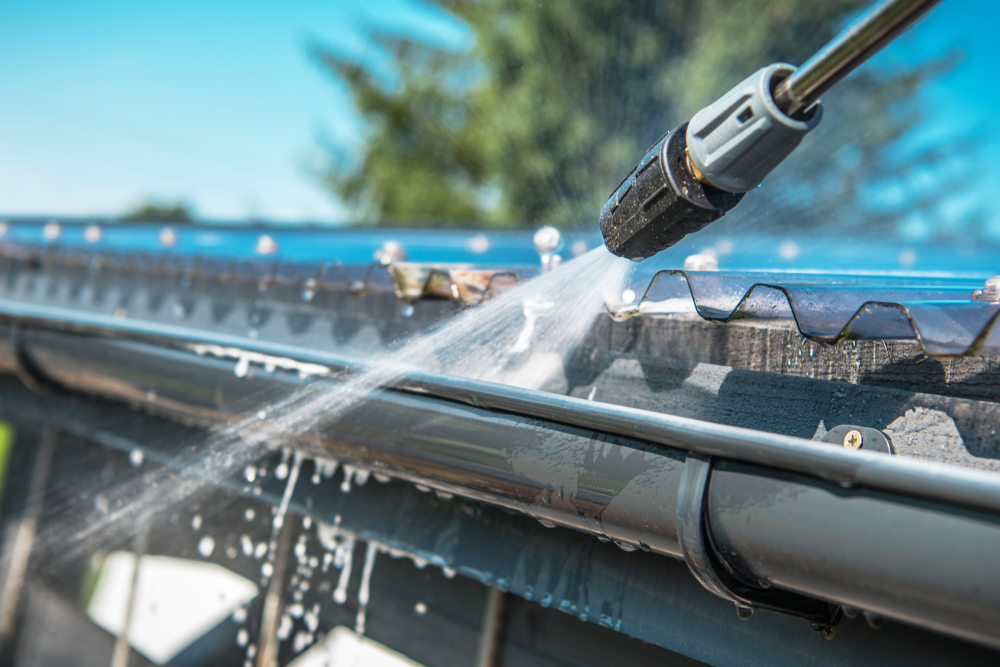Maintaining the cleanliness and appearance of your commercial property is essential for several reasons. It not only enhances the curb appeal but also protects the building from environmental damages, reduces health risks, and increases the overall value of the property. Pressure washing is an effective technique to keep your commercial property clean and well-maintained. In this article, we’ll discuss the importance of pressure washing for your commercial property and why it should be a part of your regular maintenance routine.
What is Pressure Washing?
Pressure washing is a cleaning technique that uses high-pressure water to remove dirt, grime, mold, and other contaminants from various surfaces. The pressure washer typically uses a motor to pump water through a high-pressure hose and nozzle to blast away dirt and debris. The pressure can be adjusted depending on the surface being cleaned to avoid causing damage. Pressure washing is commonly used for cleaning driveways, sidewalks, patios, decks, and buildings.
Benefits of Pressure Washing for Your Commercial Property
- Enhanced Curb Appeal
The appearance of your commercial property is the first thing that potential customers or clients notice. A clean and well-maintained property creates a positive impression and enhances the curb appeal. Pressure washing removes dirt, grime, and stains from your building’s exterior, making it look fresh and clean. It can also remove unsightly graffiti and chewing gum that detract from the overall appearance of your property.
2. Protection from Environmental Damage
Your commercial property is exposed to harsh environmental elements such as rain, wind, snow, and UV rays, which can damage the exterior surfaces. Dirt and grime that accumulate on the surfaces can trap moisture and cause mold and mildew growth. Pressure washing can remove these contaminants and prevent damage to the building’s exterior. It can also remove algae and moss that can grow on the roof, which can cause leaks and other structural problems.
3. Health and Safety
A dirty commercial property can create health and safety hazards for your employees, customers, and visitors. Mold and mildew growth can trigger respiratory problems and allergies. Dirt and debris can cause slip-and-fall accidents, especially on sidewalks and parking lots. Pressure washing removes these hazards and creates a safe and healthy environment for everyone.
4. Increased Property Value
Regular pressure washing can increase the value of your commercial property. A clean and well-maintained property is more attractive to potential buyers and renters. It can also prevent costly repairs and maintenance expenses in the long run. By investing in regular pressure washing, you can protect your property’s exterior and extend its lifespan, which can translate into a higher return on investment.
5. Regulatory Compliance
Commercial properties are subject to various regulations and codes that require them to maintain certain standards of cleanliness and safety. Failure to comply with these regulations can result in fines and legal penalties. Pressure washing can help you meet these requirements and avoid costly fines.
Pressure Washing Best Practices
To get the most out of pressure washing for your commercial property, it’s important to follow best practices. Here are some tips to keep in mind:
- Hire a Professional
Pressure washing can be dangerous and cause damage to your property if not done correctly. It’s important to hire a professional pressure washing company with experience and expertise in cleaning commercial properties. They will have the right equipment and materials to get the job done safely and effectively.
2. Choose the Right Pressure
The pressure and temperature settings of the pressure washer should be adjusted according to the surface being cleaned. High pressure can damage delicate surfaces, such as windows or painted surfaces, while low pressure may not be effective on tough stains.




